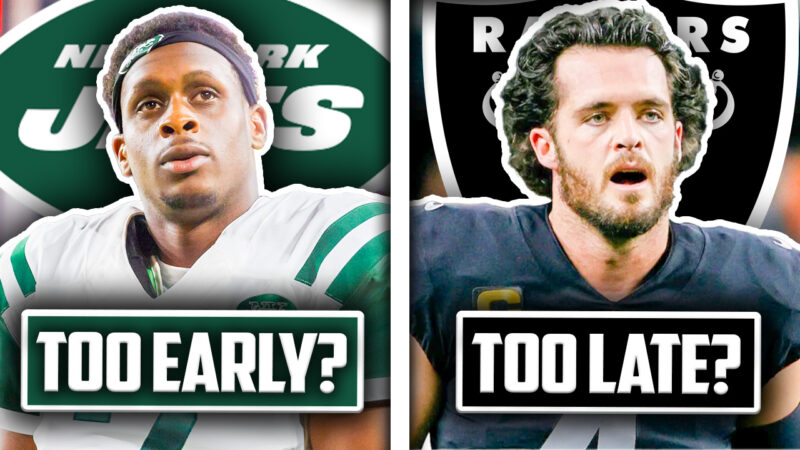
A single decision involving an NFL quarterback can make or break an NFL franchise. Just look at how Joe Montana changed the San Francisco 49ers, or how Tom Brady changed the New England Patriots.
On the other hand, some teams doomed themselves long-term by making a colossal mistake — whether it be by hanging onto a fading QB for way too long, or by giving up on a future star way too early.
Here are five such instances where an NFL team held onto a quarterback for way too long, and 5 times a team gave up on their signal-caller way too early.
Too Early: Tampa Bay Buccaneers With Steve Young
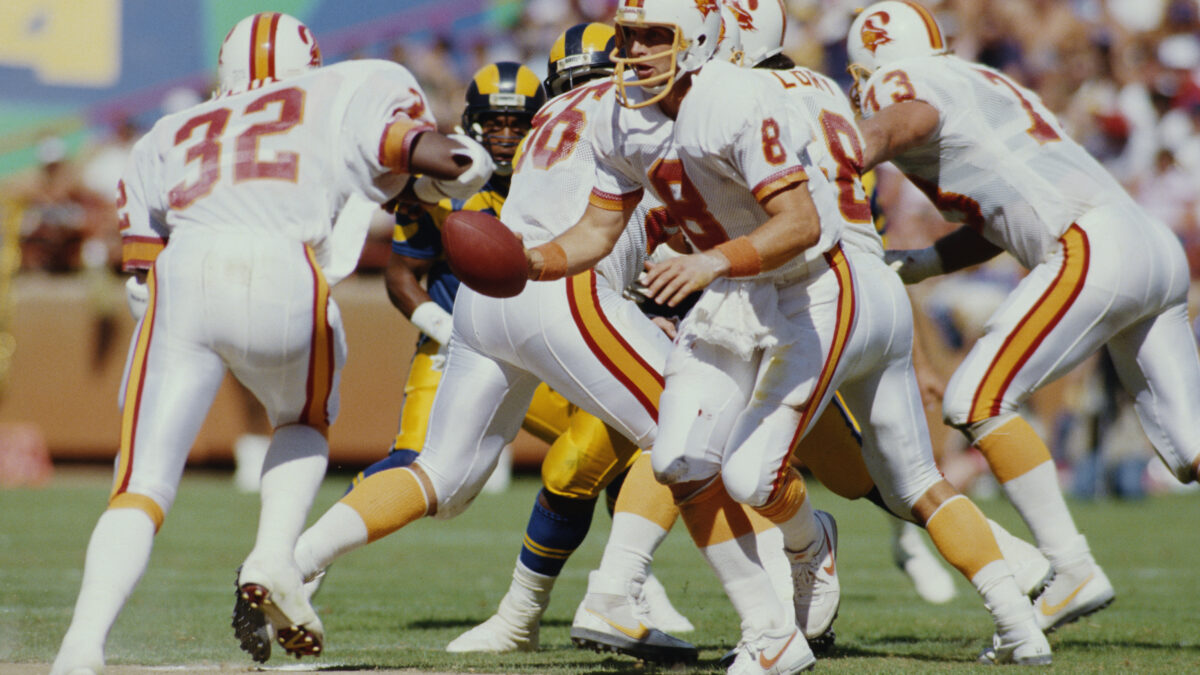
The QB-needy Buccaneers selected the Los Angeles Express quarterback with the first overall pick in the 1984 NFL Supplemental Draft. There was a lot of buzz around Young’s arrival in Tampa, but the organization failed to surround the young signal-caller with a quality supporting cast.
Young never stood a chance on a horrific Bucs’ team that went 2-and-14 in both 1985 and ‘86, his lone two seasons with the organization. With the top pick in the 1987 NFL Draft, the Bucs drafted Vinny Testaverde — and Young was traded to the San Francisco 49ers for second and fourth-round picks.
Bill Walsh had seen something special in Young, and he turned out to be right. 49ers’ star quarterback Joe Montana missed all of 1991 and all but one game in 1992, and by the time he returned, Young had taken over as the new starter in San Fran.
Click on ‘Follow Us’ and get notified of the most viral NFL stories via Google! Follow Us
Young won the 1992 NFL MVP Award in his first full season as a starter, leading the 49ers to the NFC Championship Game. San Fran chose to stick with Young and traded Montana to the Kansas City Chiefs in 1993.
Young continued the 49ers’ dynasty and led them to another Super Bowl championship in the 1994 season. If concussion issues didn’t force him to retire early in 1999, who knows how many more titles the 49ers could have won with him?
Bottom line: The Bucs’ loss was the 49ers’ gain. Tampa screwed up big time by giving up too early on the future MVP and Super Bowl champion.
Too Late: Las Vegas Raiders With Derek Carr
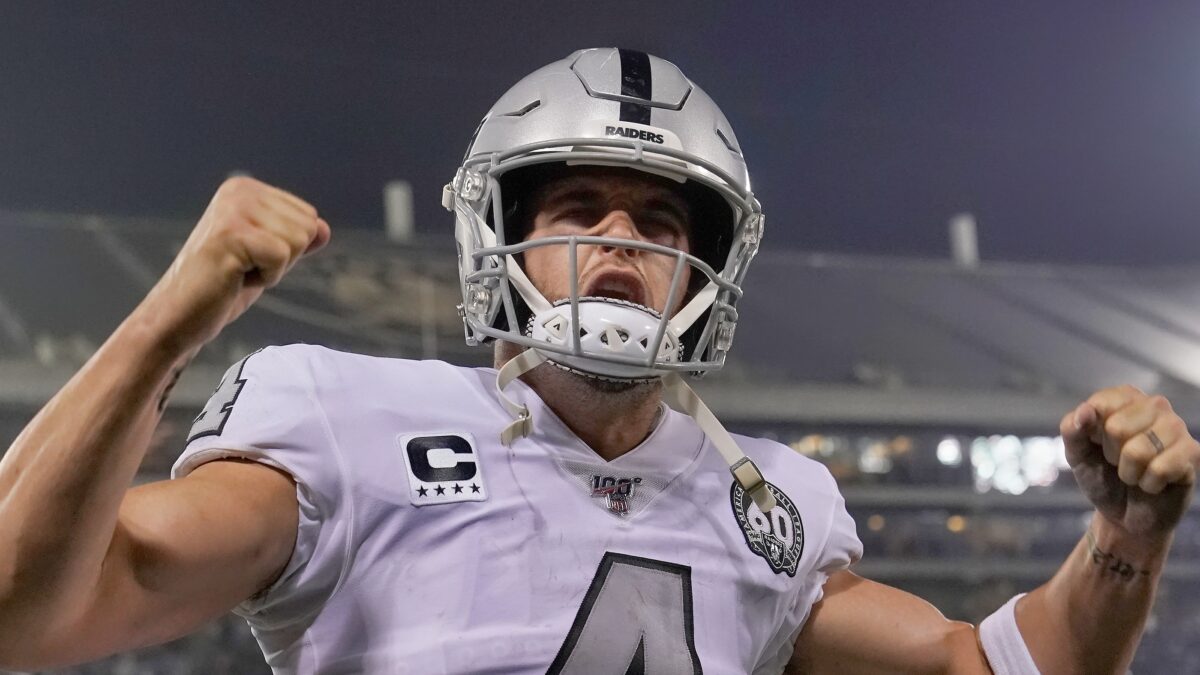
Look, this isn’t a complete knock against Carr. He kept the Raiders in playoff contention during a good chunk of his time with the organization. Before he arrived, the Raiders were lucky to top four wins in a season.
The problem, however, is that Carr was good enough to keep them from getting franchise-changing top 5 picks in the NFL draft, but he just wasn’t good enough to have them competing for Super Bowls.
It’s basically where the Detroit Lions were with Matthew Stafford. Then they executed a productive rebuilding plan, and Stafford got to win a Super Bowl when he joined the star-studded Los Angeles Rams.
The Raiders waited nine years to move on from Carr, finally releasing him in 2023 after he refused to waive his no-trade clause. Why didn’t they just trade him some years earlier when his value was high?
Jon Gruden traded away Amari Cooper and Khalil Mack, but he chose to keep Carr around instead of tanking and completely rebuilding from scratch. Had they moved on earlier, the Raiders could’ve possibly had a guy like Joe Burrow, Trevor Lawrence or Justin Herbert on their roster right now.
But Raiders owner Mark Davis settled for long-term mediocrity by keeping a QB who could keep his team in games — while the rest of the group held them back from a potential Super Bowl run. This is how you DON’T run a franchise.
Too Early: Atlanta Falcons With Brett Favre
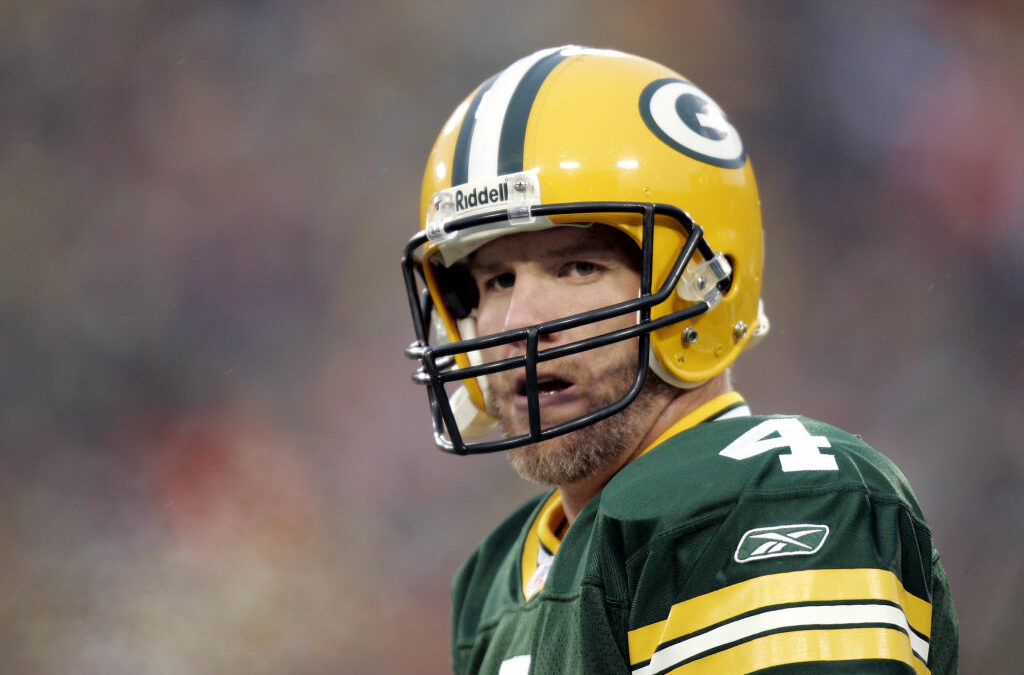
The Falcons drafted Favre in the second round — 33rd overall – back in 1991. As a rookie, Favre attempted just four passes — with zero completions and two interceptions. The Falcons, apparently, had seen enough.
In the 1992 offseason, they traded Favre to the Green Bay Packers for the No. 17 pick in that year’s draft. Atlanta traded that pick, moved down two spots and selected running back Tony Smith — who had a mere 329 career rushing yards.
Favre, on the other hand, went on to revive a Packers’ franchise that had spent more than a decade mired in irrelevance. In 16 years as a Packer, he led them to 11 playoff appearances, two NFC Championship wins and a Super Bowl 31 victory over the Patriots.
Favre won three MVP awards and retired as the NFL’s all-time leader in passing yards, passing touchdowns and quarterback wins.
Atlanta never gave Favre a chance to flourish. Instead, they gave up quickly and let him become a legend elsewhere. 30 decades later, the franchise still hasn’t truly recovered from this historically lopsided trade.
Too Late: Baltimore Colts With Johnny Unitas
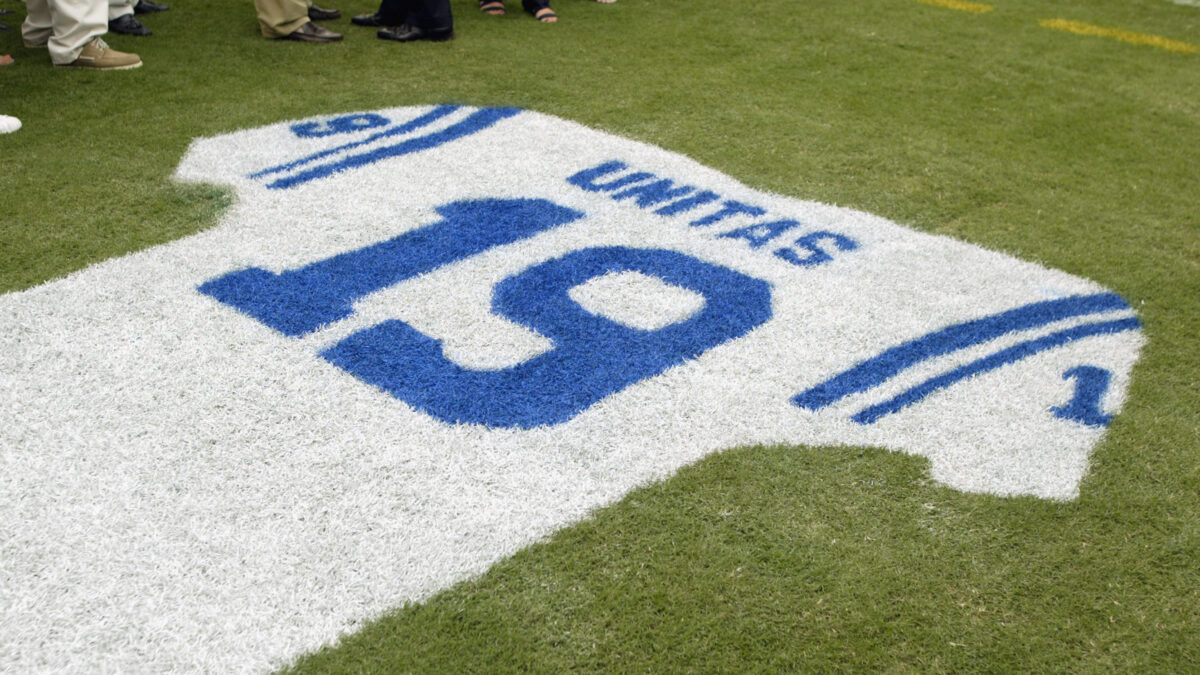
By the time he retired, Unitas was the greatest NFL quarterback ever. Football’s first true pure pocket passer led the Colts to three NFL Championships and a Super Bowl 5 victory.
Unitas won three NFL MVP awards, earned 10 Pro Bowl nods and led the league in both passing yards and passing touchdowns in four different seasons. So you kinda can’t blame the Colts for hanging onto him for so long.
But injuries, age and poor production began to catch up to Unitas by 1969. Despite a noticeable dip in stats across the board, the Colts held onto Unitas for four down years before finally moving on from him in 1972.
He spent his final NFL season with the San Diego Chargers in 1973. The Colts’ refusal to move on from Unitas earlier took away opportunities to draft or trade for a more proven quarterback, and quite frankly, they were in QB purgatory for the next quarter-century before getting Peyton Manning in 1998.
The Colts chose loyalty over business with Unitas during the final stretch of his career. Hindsight is 20-20, but it sure didn’t work out long-term now did it?
Too Early: New York Jets With Geno Smith
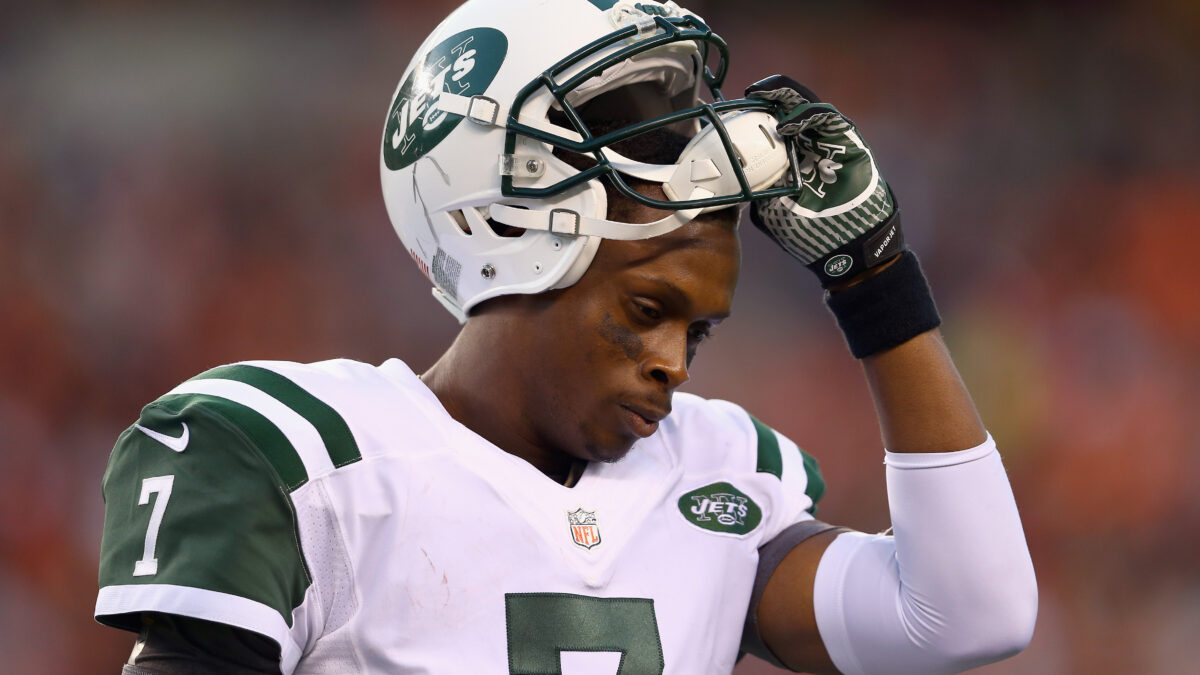
The 2022 version of Geno Smith is proof that a skilled quarterback can succeed as long as you give him an offensive line, a ground game, a good set of receivers and good coaching.
The Jets drafted Smith 39th overall in 2013. He helped them to an 8-and-8 record but had 12 touchdowns against a ridiculous 21 interceptions. Smith regressed as a sophomore, then lost his starting job in 2015 because his own teammate punched him in the face and broke his jaw.
Ryan Fitzpatrick stepped in as the starter, had a career year and kept the starting job through 2016. So Smith was let go by the Jets, and he wound up moving around the league as a backup before becoming the Seattle Seahawks’ starter in 2022 following the Russell Wilson trade.
Smith had a career year for the Seahawks, completing 69.8 percent of pass attempts for 4,282 yards and 30 touchdowns against 11 picks — leading the club to a surprise playoff appearance. He won Comeback Player of the Year honors and earned his first career Pro Bowl nod.
Smith was awarded a 3-year contract extension worth $105 million in 2023. I bet the Jets wish they had held onto him right about now. They sure could use a quarterback like Geno.
Too Late: Atlanta Falcons With Matt Ryan
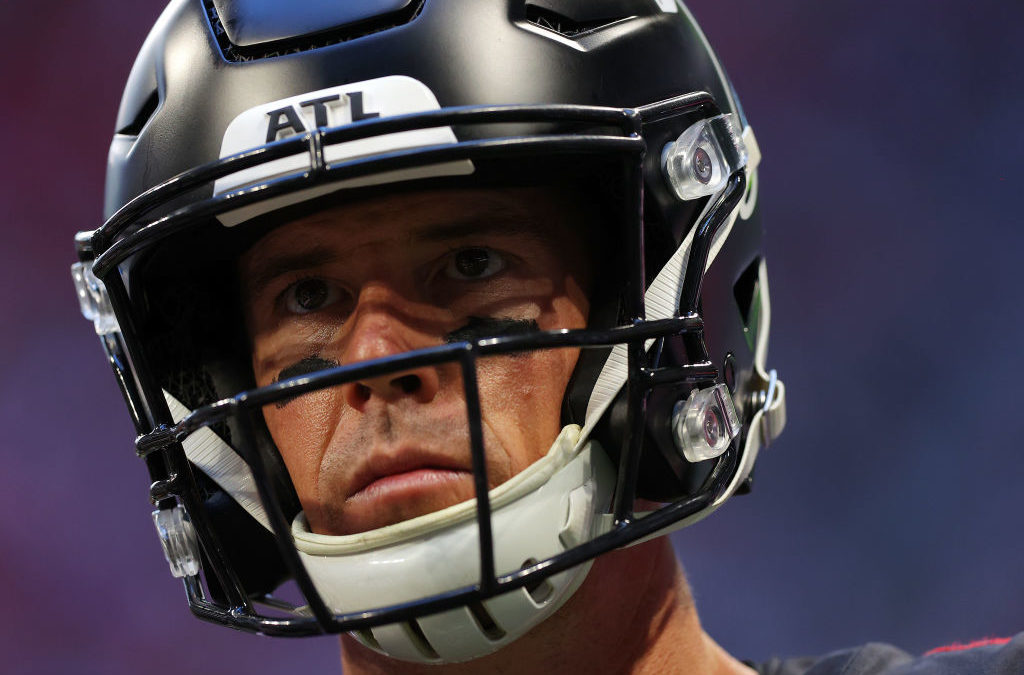
You know what we said about the Raiders with Carr? The last five years of the Matt Ryan era were basically the same thing.
The Falcons never got over their brutal Super Bowl 51 collapse. Owner Arthur Blank kept pushing back the inevitable rebuild, hoping they would regain the magic from their 2016 season. It never happened, though. Instead, they had only losing seasons in each of Ryan’s final four years as a Falcon.
The worst part is that Ryan played well enough to get Atlanta around seven wins each season. That’s not good enough for a top-five pick, and certainly not good enough for a playoff berth.
Atlanta only decided to trade Ryan in 2022, AFTER their failed pursuit of Deshaun Watson. Ryan admitted that the Falcons’ push for the controversial quarterback essentially led to him deciding it was time to part ways.
Imagine if Atlanta began a rebuild and moved on from Ryan in 2019 or 2020? They’d probably be a lot further along in their rebuild, rather than practicaly at square one entering the 2023 offseason.
Getting a third-round pick back from the Indianapolis Colts for Ryan was a nice move by GM Terry Fontenot. But his predecessor, Thomas Dimitroff, should have dealt the 2016 league MVP much earlier.
Too Early: Los Angeles Rams With Norm Van Brocklin
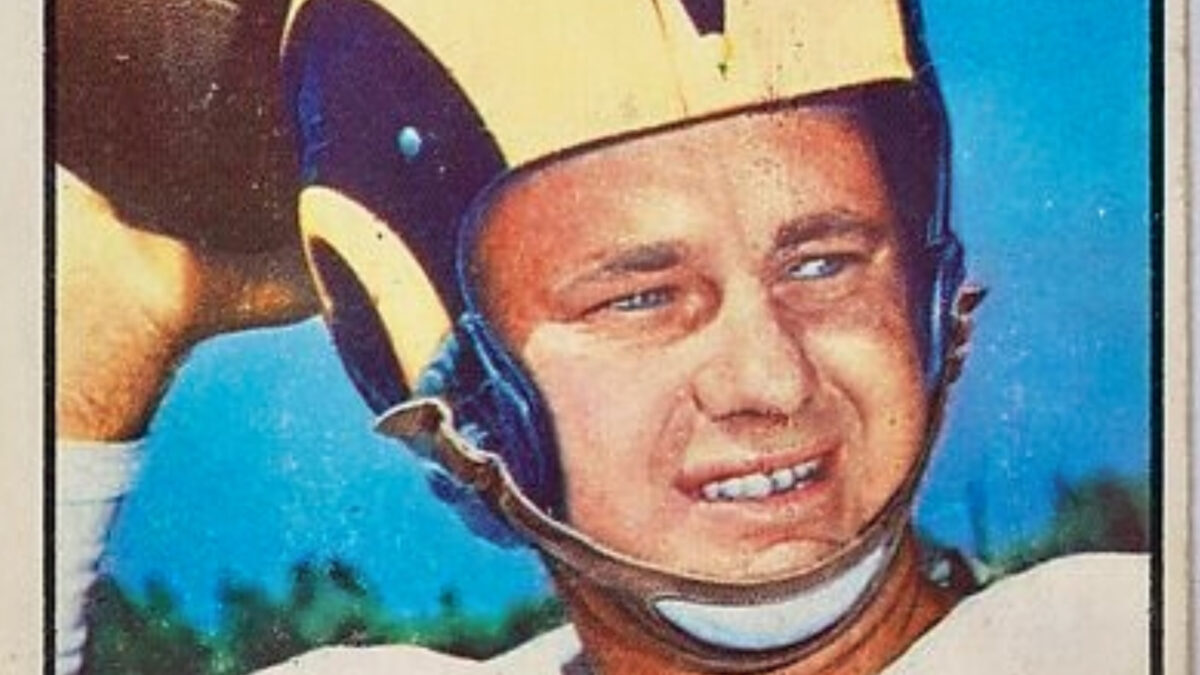
The Pro Football Hall of Famer played nine seasons with the Rams, which spanned from 1949 to 1957. Van Brocklin led the club to a 1951 NFL Championship and earned six straight Pro Bowl nods from 1950 to ‘55 with the organization.
After the 1957 season, Van Brocklin briefly retired before deciding to keep playing. However, Van Brocklin and head coach Sid Gillman didn’t see eye-to-eye on the offensive system, so “The Dutchman” was sent to the Philadelphia Eagles in exchange for a first-round pick, Jimmy Harris and Buck Lansford.
Van Brocklin had three incredible seasons in Philly to close out his career, leading them to a 1960 NFL Championship in his swan song season. He also won MVP honors that season and earned Pro Bowl nods every season in Philly.
The Rams, quite frankly, didn’t recover from this trade for a while. After trading NVB, they didn’t make the playoffs again until 1967 — and they didn’t win a playoff game until 1974.
Too Late: Chicago Bears With Jay Cutler
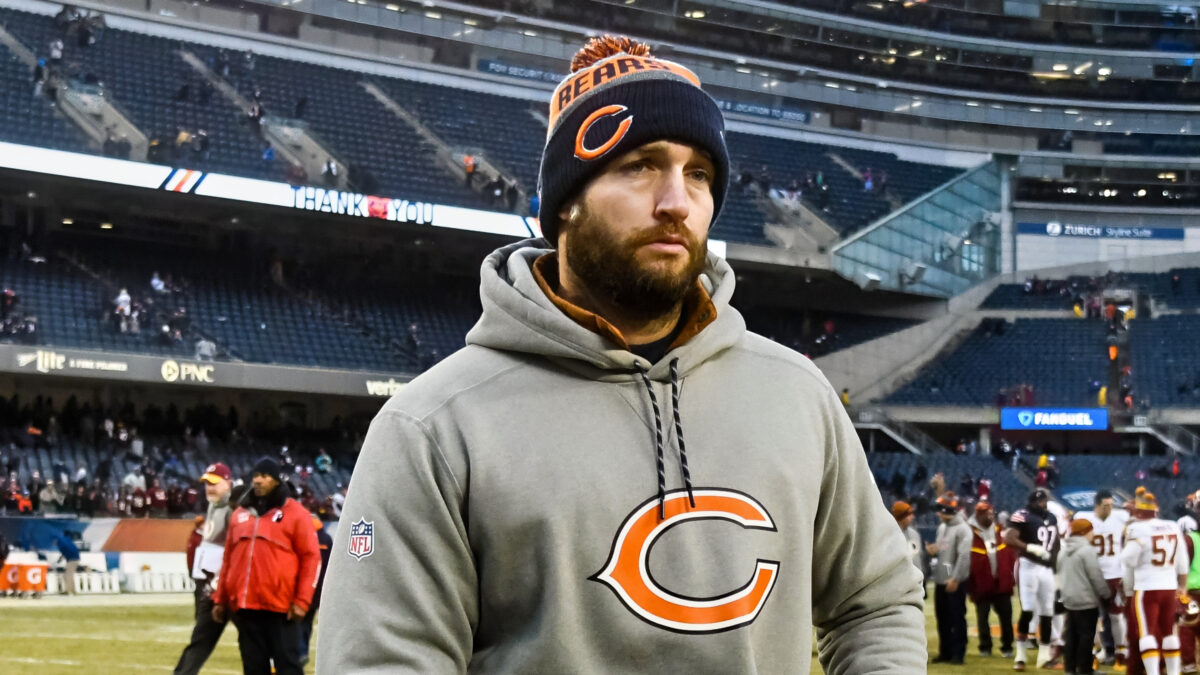
In 2009, the Bears acquired Cutler in a blockbuster deal with the Denver Broncos that sent Kyle Orton to the Mile High City.
Cutler’s first season with the Bears in 2009 was quite messy, to say the least. He had 27 touchdowns against a ridiculous 26 interceptions. In 2010, the Bears finished as the No. 2 seed and went to the NFC Championship Game, where they fell to the archrival Packers.
But Cutler’s inconsistent play just never went away. He continuously made mind-numbing decisions with the ball and couldn’t cut back on the interceptions. Cutler fell out of favor with Bears fans. They thought he was a quitter who didn’t seem to care about winning.
In 2014, the Bears made the ill-fated decision to hand Cutler a seven-year extension worth $126 million. Cutler went 12-and-23 as the starter over his final three years with the Bears after signing that deal, and he was released following the 2016 season.
To make matters worse, the Bears drafted future bust Mitch Trubisky second overall in 2017 OVER…Patrick Mahomes!!! Ouch, indeed.
Too Early: St. Louis Rams With Kurt Warner
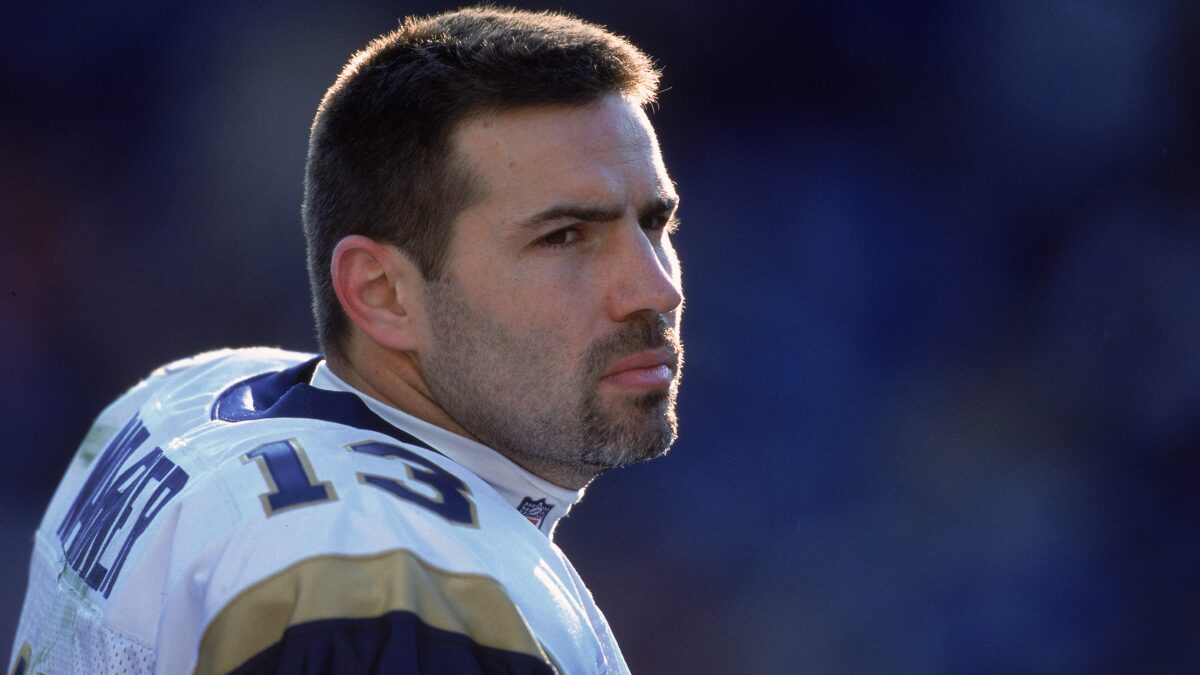
Warner was only 30 years of age in his final healthy season with the Rams back in 2001. That year, he won league MVP honors and led the organization to Super Bowl 36, where they were upset by the New England Patriots.
Unfortunately, injuries limited Warner to nine total games over the 2002 and ‘03 seasons. Backup Marc Bulger took over as the starter and had productive seasons in 2003, ‘04 and ‘06. But he was never close to producing on Warner’s level.
In 2004, the Rams released Warner — who signed with the Giants. But some fellow named Eli Manning took over as the starter that year, so Warner was once again let go and joined the Arizona Cardinals in 2005 free agency.
As it turns out, Warner had lots of good football left in him. He led the Cardinals to an unexpected trip to Super Bowl 43 — where they narrowly fell to the Pittsburgh Steelers. And the following season he took the Cards to the Divisional Round.
If the Rams stayed patient with Warner and waited for him to get healthy, who knows what could have been? Bulger had his moments, but was never an elite option like Warner. And he only had 3 good years as a Ram, and then the team was left in QB purgatory until Sean McVay arrived to help Jared Goff in 2017.
Too Late: Dallas Cowboys With Tony Romo
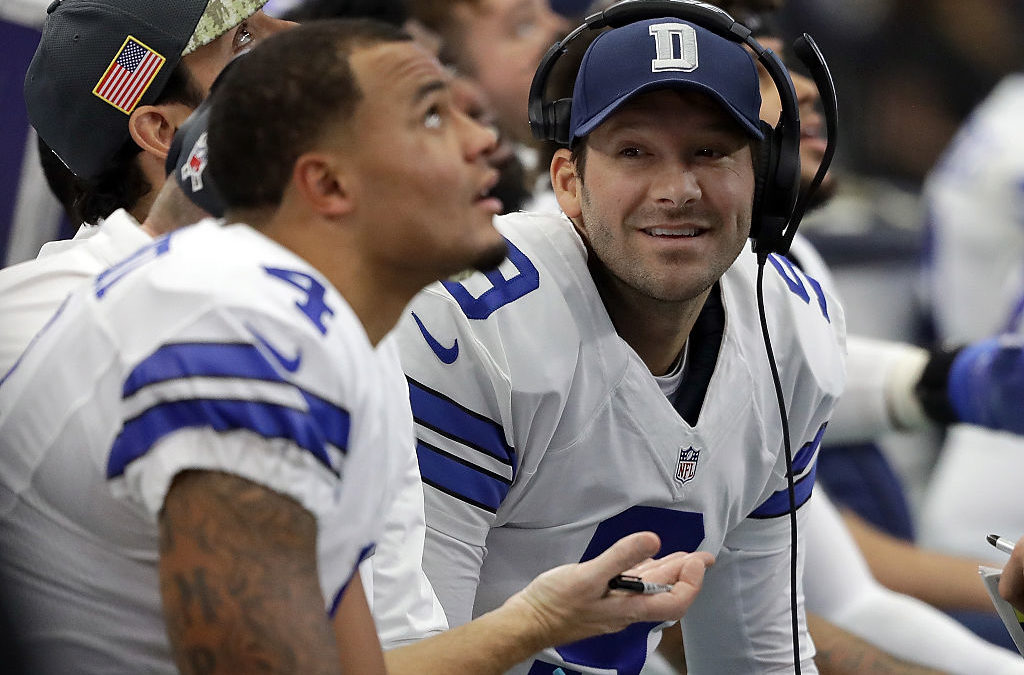
On the one hand, the Cowboys eventually found Romo’s successor, Dak Prescott, in the 2016 draft.
On the other hand, the Cowboys still haven’t reached the NFC Championship Game since 1995. What if they moved on from Romo long before Prescott’s arrival? Maybe they would have landed a different young QB who would have taken America’s team to the promised land by now?
Truth is, Dallas should have moved on by Romo after 2012 – maybe even earlier. He choked in their unforgettable 2006 Wild Card Round game vs. the Seattle Seahawks, in the ‘07 Divisional Round loss to the Giants, in the 2008 Week 17 win-or-go-home game vs. Philly, and against the Minnesota Vikings in the 2009 Divisional Round.
He missed most of 2010 with an injury. And his Cowboys lost win-or-go-home games for the NFC East crown in both 2011 and 2012. Despite all of these epic collapses, Jerry Jones remained loyal to Romo, even though he clearly couldn’t win the big one.
Not to mention all the injuries, which also affected Romo in 2013 and 2015 before he suffered the back injury in 2016 that opened the door for Prescott to step in.
Jerry keeps talking about wanting a Super Bowl. Well, maybe he shouldn’t have been overly loyal to a guy who proved time and time again that he couldn’t get it done.
Which NFL teams do you think should give up on their current starting quarterback ASAP?


